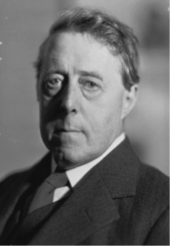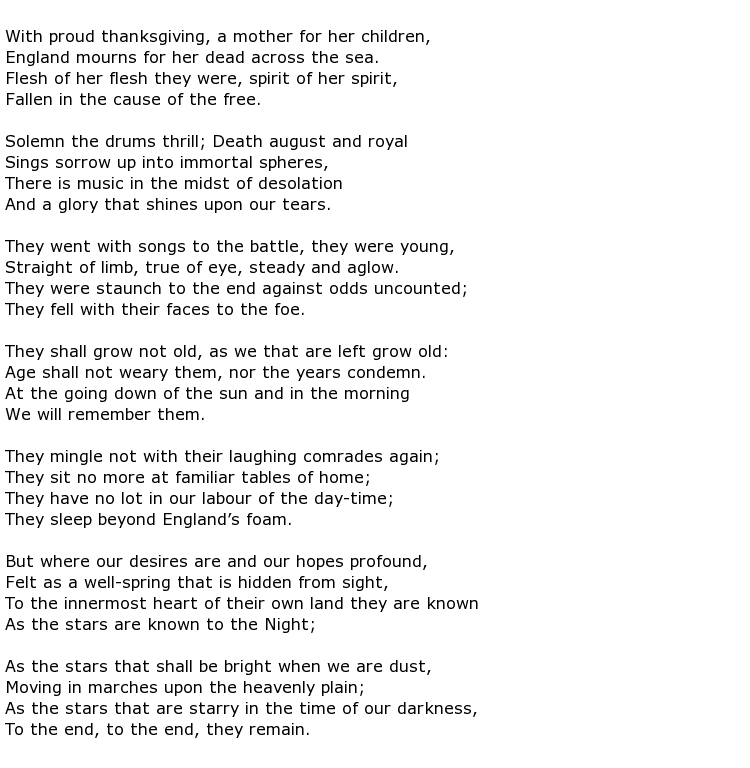 Robert Binyon is well known as one of the First World War Poets who produced significant pieces of work that are remembered to this day. His most famous poem, For the Fallen, was written in the early days of the war, in September 1914. Four lines from it are quoted at every Remembrance Day service across the United Kingdom and the Commonwealth countries and begin with the words:
Robert Binyon is well known as one of the First World War Poets who produced significant pieces of work that are remembered to this day. His most famous poem, For the Fallen, was written in the early days of the war, in September 1914. Four lines from it are quoted at every Remembrance Day service across the United Kingdom and the Commonwealth countries and begin with the words:

The complete text of this moving poem is reproduced below. As well as being a renowned poet, Binyon was also an expert on Far East art and, in fact, wrote the first book ever seen in a European language on this subject. It was called Painting in the Far East and was published in 1908.
Born in August 1869, Robert Laurence Binyon was the son of a Quaker clergyman in the Lancashire city of Lancaster. He was sent to school in London and from St Paul’s school moved on to Trinity College, Oxford. His writing was so well regarded here that he won the Newdigate Prize for Poetry. He then spent a number of years working at the British Museum, firstly in the Department of Printed Books and then, so that he could enhance his knowledge of art, he transferred to the Department of Prints and Drawings. Such was the depth of his knowledge that he became a respected authority on Oriental Art.
He was only 25 when his first book of poetry was published. The collection was called Lyric Poetry. During the early years of the 20th century Binyon spent much of his time fraternising with fellow intellectuals, poets and artists such as Ezra Pound, Walter Sickert and Edmund Dulac at the Wiener Café in London.
When war broke out he was too old to fight but volunteered to serve with the Red Cross and spent time at the Front during 1916. Binyon was deeply moved by the horrors that he witnessed and the loss of life and wrote a number of poems which were published as a collection in 1919 called The Four Years. It was a mixture of fine poems depicting the traumas on the “home front”, such as The Zeppelin, The Witnesses and The Bereaved along with the aforementioned For the Fallen, Guns at the Front, The Arras Road and Dark Wind which were all about life and death on the front line.
Binyon also dabbled in verse plays and one of them was performed at the Old Vic theatre in London, in 1923. It was about the legend of King Arthur and he called it simply Arthur. During the last ten years of his life he worked on the laborious translation of one of Dante’s great works – Divinia Comedia – which was reviewed favourably by critics. He lectured at a variety of worldwide locations and held professorships at universities in the United States and Greece.
Here is Binyon’s famous poem For the Fallen. The verse that is recited at Remembrance Day services, and is often inscribed on monuments to the those who died in battle, is highlighted in bold:

Laurence Binyon died in March 1943, aged 73.

